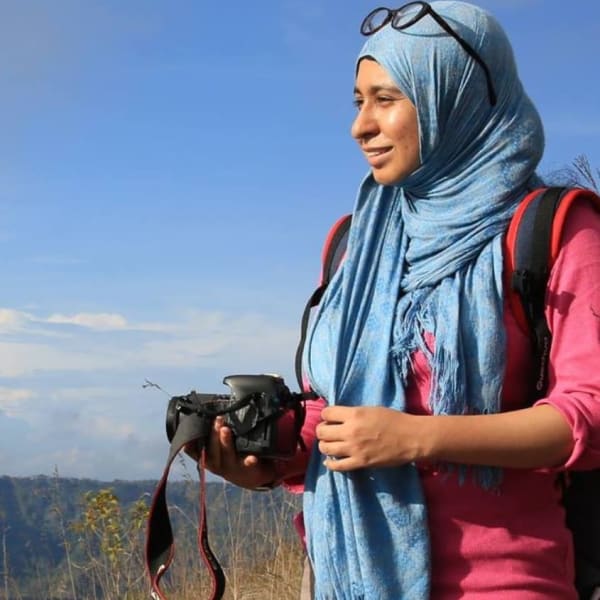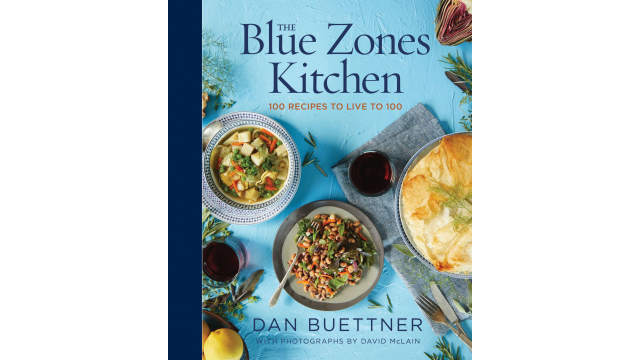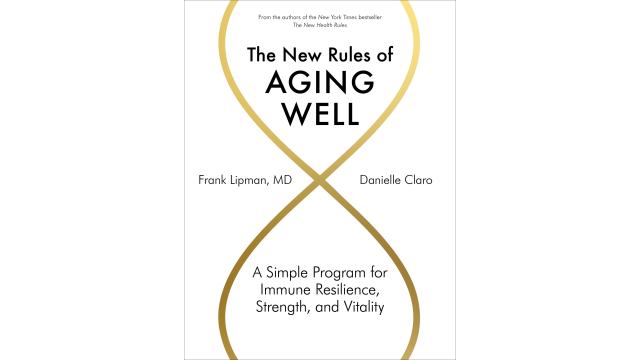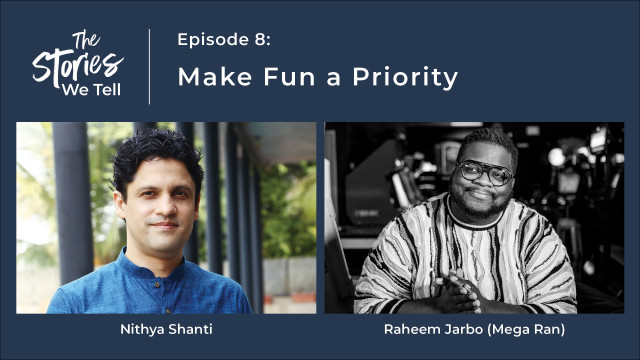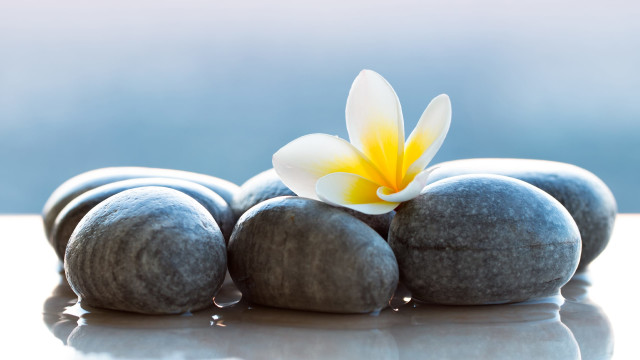Q&A with Dan Buettner

What does a dusty Nat Geo explorer of archaeological mysteries, with boots in the mud and eyes on the horizon, have to do with wellbeing, taste, and nutrition? Plenty, if it is Dan Buettner.
We have much to thank Buettner for spotlighting with empirical evidence the healthy eating habits and wellness wisdom linked to longevity. Twenty years ago, the journalist, National Geographic Fellow, and author discovered the longevity hot spots in the world and the reasons for their healthiness, changing the discourse around healthy eating and better living.
Buettner’s finding on his geographic tours was the simple truth — nutritious eating and lower stress leads to health, happiness, and longer life. That’s what we learn in The Blue Zones Kitchen, his bestseller in the Blue Zones series of books that have solidified a model of diet, food, and lifestyle.
The five Blue Zones — Ikaria in Greece, Sardinia in Italy, Okinawa in Japan, the Nicoya Peninsula of Costa Rica, and Loma Linda in California — have populations who live to be over a 100, boast of delicious cuisines, and have inhabitants who lead happier lives due to lower stress levels. The findings led Buettner on a mission to apply the learnings from the Blue Zones to improve the health and wellbeing of communities by initiating changes in public policy, social connections, and local environment with the Blue Zones Projects.
Now, Buettner is starting a food company in the US. The Blue Zones Kitchen, a food company will focus on sale of plant-based whole foods. The recipes will be inspired by the world’s longest-lived people with the aim to reverse certain diseases like diabetes or heart disease with healthy food. The foods sold will be prepared with a “maniacal focus on deliciousness”, he promises. And sometime soon, he plans to land on the coast of Kerala to understand why the South Indian state has the highest life expectancy in India.
In the meantime, as he chats with us while walking along a beach on the Atlantic Ocean, he speaks about the benefits of weaving physical movement organically into each day. Buettner squints at the warm sun and says it’s not a day for pickle ball or cycling, but a good one for a swim and said he would dive into the waves right after this dialogue.
Roundglass Food: What’s your upcoming book, The Blue Zones American Kitchen all about?
Dan Buettner: The first, The Blue Zone Kitchen, did very well as a book. The idea behind that was to find, statistically, the longest-lived people around the world and discern what they've eaten over the past couple of 100 years. And then gather the recipes that include the ingredients we know correlate to longevity or greater health.
I got to thinking, there must be populations in America who eat like this or used to eat like this. The genesis of the project was then to go find those subcultures. I hired a researcher at NYU, to go through dietary surveys, to see if there are populations, who ate essentially a Blue Zone diet, and indeed, we found four of them; four general subcultures who ate a Blue Zone Diet, mostly between about 1890 and 1930 in America. The book recreates those diets.
RG: Who are these people and what kind of food wisdom did you glean from the research?
DB: African Americans, especially the Gullah Geechee people in Southeast United States, and several other places; Asian Americans, who came to America with a deep knowledge and understanding on how to make plant-based food taste delicious. They also knew and used dozens of greens, which taught Americans how to eat greens and make them taste good. The Native Americans, who never traditionally ate pork or beef or chicken and relied on root vegetables and seeds, and what they could hunt. Along the coast of course, fish. And then Latin Americans, whose diet centered around beans, corn, and squash, the three sisters, which I argue is the healthiest diet in the history of the world, because they’re very sustainable crops or a symbiosis of crops but also provides complex carbohydrates and all the amino acids necessary for human sustenance.
Over the course of the pandemic, along with National Geographic photographer David Mc Lean, I canvassed the entire United States from Maine to Hawaii, from Miami to Minnesota, finding the chefs that still know how to cook within these ethnicities as they ate 100 years ago.
RG: What’s the wellness wisdom you want readers of The Blue Zones American Kitchen to learn?
DB: It's the last American diet of longevity because these dietary traditions have been corrupted as they evolved in the American food environment. I think that the most important ingredient in longevity is that diet is taste. People don't understand that if they don't love the food, they're not going to eat it. They'll eat it in the short run because they think it's healthier, they'll lose weight, but will never eat it in the long run. That's why diets fail. Right now, in our food system processed meaty, cheesy, eggy food is engineered to be irresistibly delicious. We stop paying attention to making plant-based food taste delicious. This book will harness the genius of these four food traditions that could help the average American live up to 13 years longer.
RG: Do you have a go-to kitchen hack to make vegetarian food tastier?
DB: Well, the general rule is oil and spices. The other thing is a little bit of miso. If you're eating spinach or broccoli, put just a half a teaspoon of or a teaspoon of miso in there. It adds that umami to it. Mostly it's oil, and then the herbs and spices of your choice.
RG: What lifestyle and food changes would you recommend to those who don’t live or have the optimized community setting of a Blue Zone community?
DB: The general premise of Blue Zones is if you want to change your health, if you want to improve your health, don't try to change your behavior, because you will fail in the long run. Change your environment. The most important thing you can do is move. If you're not living in an area with a good food environment and easy access to recreation and clean air, it's going to be very difficult. For those people who can't move, you can think of the environments you can control. One environment of course, is your kitchen and there are few research interventions we know that work.
• Taking your toaster off your counter and putting it away! People who have a toaster on their counter for two years weigh about six pounds more than people who don't have a toaster.
• Having a high-quality fruit bowl. Having an out-of-the-way junk food drawer or space because when it comes to food, we tend to be on a “see food” diet. We eat the foods we see. Out of sight, out of mind, we eat them less.
• Believe it or not – and the research is solid on this – weighing yourself every day. Put your bathroom scale in your way. So that's like another environmental tweak.
• A big one is your social. You want friends who care about you on a bad day and with whom you can have a meaningful conversation. You want friends, who already are in the habit of eating plant-based whole foods, because that's measurably contagious; to having a vegetarian or vegan or two in your immediate social circle, because they're going to teach you how to eat and how to find delicious plant-based foods.
The act of cooking itself and cooking your own meal is very important in the Blue Zone diet. In America, if you go out to dinner, on average, you consume about 200 more calories than you would if you ate at home. Those calories tend to come along with more salt, sugar, and added fats. So, cooking at home is very important.
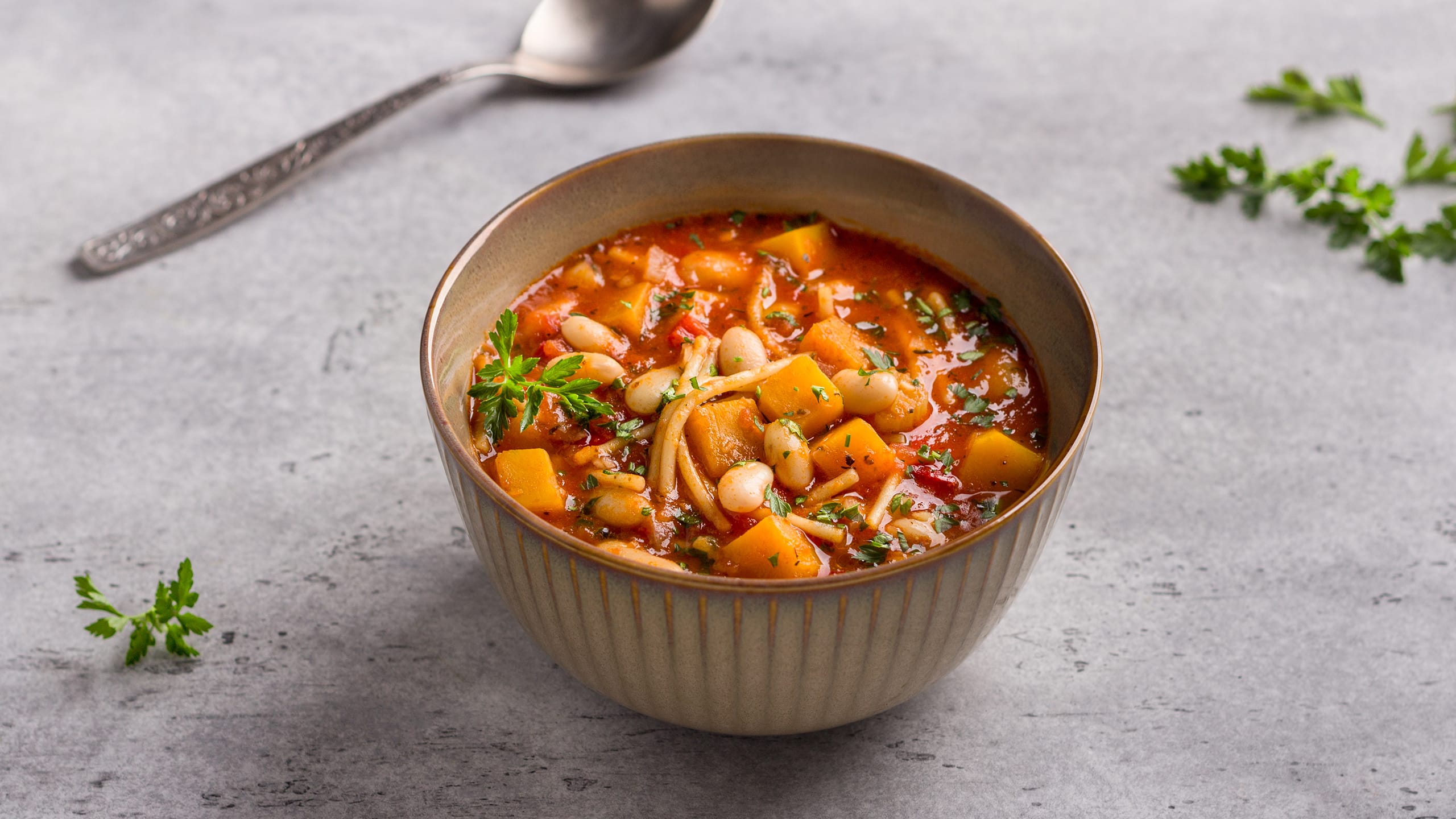
RG: What's your cooking mantra and ideal mix of foods?
DB: The longest living family in the history of the world eat a minestrone soup every day of their life. It's essentially a chunky vegetable soup. Different people like different mixes of flavors, but my go-to is that I make that minestrone soup every day. And I use an Instant Pot because there's a lot of beans in there. And it takes me exactly 17 minutes to chop and put all the vegetables and the rest ingredients together in that soup. Then I hit the button. And I come back 20 minutes later. And I have 10 servings of food. So, I can feed everybody around me, or I can freeze it.
You hear all the time from people that they don't have time to cook healthy. But with an Instant Pot and a good recipe, you could cook meals for under $1 a serving that takes you less than two minutes per serving to produce and I can produce 10 servings in an instant pot in 17 minutes. It can be incredibly time efficient.
We were given the wrong information, the wrong idea that you hear all the time. “I can't afford to eat whole foods; I can't afford fresh fruits and vegetables.” Well would it not be good if everybody could eat fresh fruits and vegetables every day? Yes. By eating beans and a grain like beans and rice or beans and corn tortilla with canned tomatoes and some quickly chopped non-organic vegetables, you're about 98 per cent the way there to eating healthy. Every American can afford it. We are somehow so diluted as a country on what we have time to do and what we can afford.
RG: Could you elaborate your take on non-organic vegetables?
DB: We get marketed into the idea that because it's organic, it's healthy for us. My doctor told me about all these obese patients that would come to her. She would gingerly talk to them about what they've been eating. And they said, “Well, I've been eating organic beans, or I've been eating organic yogurt.” Not really realizing that, you know, the yogurt’s full of sugar. And they're eating too much meat and too many calorically-dense foods.
Here are the two problems with organic:
- One, we think just because it has an organic label on, it’s healthy. Organic chips, it's all over the place, organic doesn't necessarily mean healthy.
- Two, it gives people an excuse not to eat vegetables saying they can't afford organic. So, I'm not going to eat these non-organic vegetables. No! Eating those non-organic vegetables is way healthier than eating that meat or those processed foods. Partially because most non-organic vegetables are still very healthy for you. What we don't realize is, for example, if we picked that pork chop instead of non-organic vegetables, it took eight pounds, or nine pounds of non-organic grain to make that one pound of pork chop. A lot of the undesirable ailments that we fear in a non-organic vegetable get aggregated by orders of magnitude when we eat it in meat or eggs.
RG: What are your favorite ingredients?
DB: Red pepper flakes. Oh, and olive oil. I also use miso, that’s another trick. The point is that those foods make vegetables taste good so, I'll actually eat the vegetables.
RG: Is it ever too late to start the Blue Zone diet?
DB: No, it's never too late. If you're 20 years old, and you're eating a Blue Zone diet and if you're a man, it's worth about 13 extra years of life expectancy and about 10 if you're a woman.
If you wait till you're 60, you can still get another six years of life expectancy by dropping the standard American diet and adopting a Blue Zone diet. And if you're 80, you can still get another three years of life expectancy, by changing the way we eat towards the Blue Zone diet. And when I say Blue Zone Diet, it's essentially whole foods, plant-based diet, greens, grains, nuts, and beans.
RG: What was the big surprise or revelation about health and happiness you learned from your research?
DB: I think it's the vastly under celebrated power of walking. Okay, you can get about 90 percent of the physical activity value of training for a marathon by just walking 45 minutes. And the best way to do that is commute to work, live in a walkable neighborhood. Or have a best friend whose idea of fun is walking with you every day. That's all you need. You don't need a gym. You don't need CrossFit. You don't need yoga classes. You don't need a Peloton in your basement.
People in the Blue Zones didn't do any of that and these people made it to 100. But they walked to the bakery in the morning, they walked to their friend's house, they walked in their gardens. I mean it's so crystal clear. But there’s a big, profitable exercise industry that relentlessly markets to us, we need something fancy to stay healthy and it’s just not true.
This interview has been edited for length and clarity.
Key Takeaways
- Buettner on healthy diet for longevity.
- Learn lifestyle and culinary wisdom of other cultures.
- Movement and mindful eating, the Blue Zones way.
